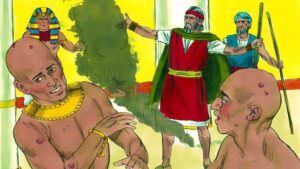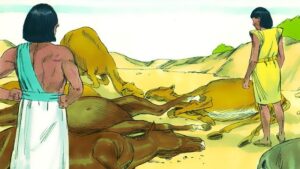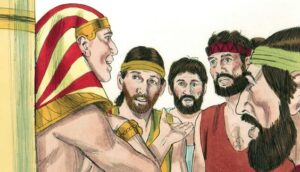Introduction
The story of Adam and Eve’s disobedience in the Garden of Eden is a cornerstone of biblical teachings. It explains the introduction of sin into the world and the subsequent fall of humanity. This blog delves into the reasons behind their disobedience, exploring the factors that led to this pivotal moment in biblical history.
The Temptation in the Garden
Adam and Eve lived in the Garden of Eden, a paradise where they had everything they needed. God gave them one command: they could eat from any tree in the garden except for the tree of the knowledge of good and evil. The serpent, a cunning creature, played a crucial role in their disobedience.
The Role of the Serpent
The serpent approached Eve and questioned God’s command, saying, “Did God really say, ‘You must not eat from any tree in the garden’?” (Genesis 3:1). This question planted seeds of doubt in Eve’s mind. The serpent further enticed her by claiming that eating the fruit would open their eyes and make them like God, knowing good and evil.
Doubt and Desire
Eve saw that the fruit of the tree was good for food and pleasing to the eye, and also desirable for gaining wisdom. She took some and ate it. She also gave some to her husband, Adam, who was with her, and he ate it (Genesis 3:6). Their desire for wisdom and the temptation to be like God overcame their obedience to His command.
The Consequences of Disobedience
Immediately after eating the fruit, Adam and Eve’s eyes were opened, and they realized they were naked. They sewed fig leaves together to cover themselves and hid from God. When God confronted them, Adam blamed Eve, and Eve blamed the serpent. This act of disobedience led to their expulsion from the Garden of Eden and introduced sin and death into the world.
Spiritual Lessons
This story teaches several important spiritual lessons:
- The Danger of Temptation: The serpent’s deceit highlights how easily temptation can lead to disobedience.
- The Importance of Obedience: God’s command was clear, and their disobedience had severe consequences.
- Human Vulnerability: Despite living in a perfect environment, Adam and Eve’s desire for more led to their downfall.
- Accountability: Blaming others does not absolve one’s responsibility for their actions.
Modern Interpretations and Relevance
Many interpret the story of Adam and Eve as a metaphor for human nature and the struggle with temptation and sin. It emphasizes the need for obedience to divine commands and the consequences of straying from them.
Conclusion
Adam and Eve’s disobedience in the Garden of Eden is a profound story that continues to resonate. It serves as a reminder of the importance of obedience to God, the dangers of temptation, and the far-reaching consequences of our actions. Reflecting on this story encourages believers to stay vigilant against temptation and remain faithful to God’s commands.







